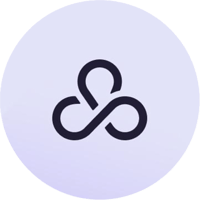Description
Jump is transforming the live sports experience with the only end-to-end fan engagement platform built specifically for sports teams and venues. By focusing on aligned incentives between teams and fans, our platform unifies ticketing, merchandise, and game day operations - creating a smoother, more fan-friendly experience.
Founded in 2021 by e-commerce innovator Marc Lore, MLB legend Alex Rodriguez, and entrepreneur Jordy Leiser, we’ve raised $60 million from top investors including Alexis Ohanian’s Seven Seven Six and Forerunner Ventures. Our platform powers teams across the NBA, WNBA, and NWSL helping them boost ticket sales and deliver innovative fan experiences.
We’re a remote-first team driven by core values - begin and build with trust, play like the underdog, win as a team, and do your thing. If you’re collaborative, adaptable, and eager to shape the future of live sports, Jump is the place for you.
The Role
We’re looking for a Principal AI Engineer to expand the foundation for Jump’s AI-native future — building the infrastructure, tools, and culture that empower every internal team to move faster, work smarter, and deliver unforgettable experiences for sports fans. This role has two core missions:
Build AI infrastructure and internal tools. You’ll design, build, and deploy AI-powered systems and tools that enable our engineering teams to experiment, evaluate, and deliver high-quality solutions. In addition, you’ll create AI tools that support other departments — from product to finance — helping them leverage AI in their workflows. You’ll own the full lifecycle of these tools, from gathering requirements and building prototypes to iterating and deploying production-ready solutions.
Champion AI adoption across the company, teaching and evangelizing best practices to accelerate how every team leverages AI to do their best work.
You’ll report to the CTO and work closely with senior leadership, engineering leads, and product teams to refine Jump’s AI foundations — from eval harnesses and context engineering frameworks to internal tools, and workflows. You’ll also lead rapid experimentation and internal demos that inspire and upskill the organization.
What you’ll do:
AI Infrastructure & Internal Tools
Architect, build, and maintain Jump’s internal AI platform — including model evaluation frameworks, experimentation, context and prompt management systems, and fine-tuning pipelines.
Standardize and automate internal tooling: from Claude code org wide setup to orchestration frameworks for AI agents and workflows.
Design and deploy RAG systems, vector databases and other foundational components for production-grade AI systems.
Define best practices for evaluation and benchmarking of models and agentic workflows (including quality, reliability, latency, cost, and safety).
Develop templates and libraries for agentic workflows, memory, and tool use.
Partner with the engineering organization to integrate AI agents and features into Jump’s products.
Ensure reliability, observability, and scalability of AI systems across environments.
AI Organizational Enablement
Act as an AI subject matter expert — running workshops, demos, and internal talks to help every function apply AI to their workflows.
Lead rapid experimentation initiatives — identify and prototype high-impact internal AI use cases, then scale successful ones.
Partner cross-functionally with HR, Finance, and Client Services to design and deploy AI automations that save time and increase quality.
Maintain an internal AI playbook — a living repository of best practices, design patterns, and how-to guides for prompt engineering, context design, agent building, and evaluation.
Mentor engineers and product teams on effective use of LLMs, model selection, and architecture design.
What you’ll bring:
10+ years in software engineering or systems architecture, with 1+ years focused on AI/ML, LLMs, and agentic systems.
Full stack development experience.
Deep technical expertise with modern AI systems and frameworks — including Foundational models APIs, AWS Bedrock, N8N, Open Source Models, LangChain or similar.
Proven experience building and deploying AI infrastructure, including evaluation frameworks, monitoring, and agentic workflows.
Hands-on experience with vector databases, RAG systems, and context management for LLMs.
Strong proficiency in Python and TypeScript, with experience integrating APIs and orchestration tools.
Familiarity with cloud infrastructure (AWS), containerization (Docker, Kubernetes), and IaC (Terraform, CloudFormation).
Experience fine-tuning LLMs.
Excellent communication and presentation skills — comfortable leading demos, training sessions, and internal talks for both technical and non-technical audiences.
A passion for teaching, experimentation, and scaling organizational impact through AI.
Nice to have (but not required):
Experience building multi-agent systems.
Contributions to open-source AI tools.
Experience implementing internal developer platforms or productivity tools.
Attributes that will make you successful on our team
A strong desire to learn. You continually look for ways to build your skills.
Tenacity. You enjoy working on challenges that others can’t or don’t want to tackle and you aren’t afraid of failing fast in order to find better solutions.
Passion. You love using your technical skills to build products that solve real problems. You hold yourself to a high standard and help to elevate others as well.
Empathy. You thrive in an environment where everyone can truly be themselves. You understand that our differing life experiences influence who we are and how we show up, and these diverse perspectives enrich both our team and our product.
Customer-centric mindset. You can understand the problem to be solved and who we are solving it for.
Innovation: Passion for exploring and implementing AI technologies to enhance automation, optimize workflows, and drive innovation
Benefits
Remote first
Competitive salary and equity
Flex PTO policy
401(k)
Generous medical, dental and vision plans
16 weeks paid parental leave for primary and secondary caregivers
$1,000 reimbursement for work-from-home tech setup
Company-paid sustainability subscription to ensure carbon neutrality is maintained for employee activities, such as travel
Compensation
Compensation is something we don’t want our candidates or employees to worry about. Our goal is to offer competitive salaries that are regularly benchmarked against the market. The core tenets of our compensation philosophy are fairness and transparency.
We have established a standardized leveling framework based on job scope and responsibilities. The compensation package for each level is standard across all engineering roles. This means that every person at a certain level is paid the same as everyone else, regardless of their background, previous compensation, location, or any other factor.
The compensation for this role is $230,000 and includes a generous equity package.
Application
Some candidates may see the requirements and feel unsure that they match all the criteria. We encourage you to apply! There's a good chance you have important skills that we have not stated. We especially encourage members of traditionally underrepresented communities to apply, including women, nonbinary folx, people of color, members of the LGBTQ community, veterans, and people with disabilities. We’re committed to building an inclusive workplace where everyone can bring their authentic self and thrive, and we value the diversity brought by different life experiences.
Top Skills
Similar Jobs
What you need to know about the Colorado Tech Scene
Key Facts About Colorado Tech
- Number of Tech Workers: 260,000; 8.5% of overall workforce (2024 CompTIA survey)
- Major Tech Employers: Lockheed Martin, Century Link, Comcast, BAE Systems, Level 3
- Key Industries: Software, artificial intelligence, aerospace, e-commerce, fintech, healthtech
- Funding Landscape: $4.9 billion in VC funding in 2024 (Pitchbook)
- Notable Investors: Access Venture Partners, Ridgeline Ventures, Techstars, Blackhorn Ventures
- Research Centers and Universities: Colorado School of Mines, University of Colorado Boulder, University of Denver, Colorado State University, Mesa Laboratory, Space Science Institute, National Center for Atmospheric Research, National Renewable Energy Laboratory, Gottlieb Institute



